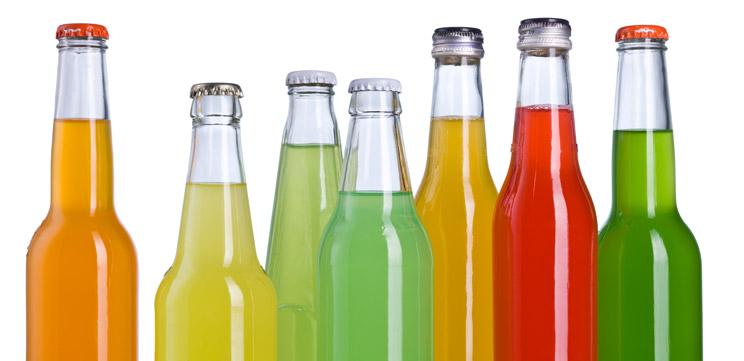The Australian Medical Association (AMA) has today called for a tax on sugary drinks as part of its plan to tackle chronic disease and make Australia the healthiest country in the world. This, however, has been met with criticism from the non-alcoholic drinks industry.
In his first address to the National Press Club in Canberra today, AMA President Dr Omar Khorshid said that Australia lags behind comparable nations in health outcomes and disease prevention, and it was time for action to reduce consumption of sugar-filled drinks.
“More than 2.4 billion litres of sugary drinks are consumed every year in Australia. That’s enough to fill 960 Olympic sized swimming pools,” he said.
“Diabetes, obesity and poor vascular health are huge contributors to the burden on our health system.
“Sugary drinks – and, in particular, those which have little or no nutritional value – fuel this problem.”
The tax proposed in the AMA’s report released today, ‘A tax on sugar-sweetened beverages: Modelled impacts on sugar consumption and government revenue’ would raise the retail price of the average supermarket sugary drink by 20%. This, says the AMA, would be an important first step towards tackling obesity and raise revenue to take further steps.
“The tax on sugary drinks sends a clear price signal to consumers that a product is unhealthy and makes it less affordable,” Dr Khorshid said. “It can also nudge manufacturers to reformulate their products to contain less sugar. The added bonus is that it will generate revenue to rekindle our nation’s preventative health agenda.”
A ‘last century solution’
The Australian Beverage Council says the proposal to introduce a sugar tax to address obesity is a “last century solution to a modern-day problem”.
“Calls today by the AMA for a tax on drinks in the shopping trolley of everyday Australians will hurt households but more importantly will miss the mark and make no impact on the rates of obesity and diabetes,” Australian Beverages Council CEO Geoff Parker said.
“The doctors’ union knows this type of discriminatory and regressive tax lacks any evidence from anywhere in the world in providing public health benefits and is nothing more than a money grab ahead of an election in the near future.”
The Council says that countries that have introduced similar taxes have failed to see a meaningful impact on obesity and diabetes rates and many have repealed them. This includes Denmark, Norway and other Nordic countries, as well as the UK and Mexico.
“[The] lack of real-life evidence is one of the reasons the government doesn’t support a tax on households, particularly at a time when many families are facing extreme hardship as a result of the economic impacts of the pandemic,” the Council said.
“The AMA’s call for a tax also ignores recent peer-reviewed research in the journal Nutrients which shows a long-term, 20-plus year shift in Australians’ non-alcoholic drink choices away from regular sugar drinks, with each Australian over that 20-year period drinking an astonishing 30% less sugar, the equivalent of 32 teaspoons or 127 grams of less sugar per person, per year. In fact, since 2015 sales of low/no sugar drinks have exceeded those of regular sugar drinks.
“Australians have achieved this outstanding result through consuming significantly more no-sugar drinks, such as plain, sparkling and functional waters, and sugar-free drinks. The AMA is right to talk about Olympic swimming pools, but these pools in 2021 are largely filled with plain water and low/no sugar drinks given 60% of non-alcoholic drinks consumed by Australians are these varieties.
“The significant shift away from sugar sweetened drinks in favour of low/no sugar varieties, including an exponential rise in the consumption of bottled water has been fuelled by an impressive portfolio renovation in the drinks industry that has been well underway for decades and includes reformulation, smaller pack sizes, more diversity in vending and workplace settings, and full support for canteen guidelines and the Health Star Rating Scheme.
“Bringing speed and scale to this portfolio renovation agenda is the industry’s flagship Sugar Reduction pledge, launched in June 2018. It is a commitment by the nation’s largest drink companies to reduce sugar across their portfolio by 20% by 2025, a goal the industry is already well on the way to exceeding.
“This is the first time an industry has united to reduce sugar and shows the drinks industry is stepping up to play its part and is ahead of the rest of the items in the shopping trolley in being responsive and responsible. The drinks industry encourages other sectors of the food supply to also step up and launch their own pledges and play their part in addressing a complex, multi-factorial problem like obesity and diabetes.
“The AMA have regrettably ignored these positive steps by the drinks industry and the encouraging public health trends including the latest data on drink sales and have deliberately neglected to mention that these seismic shifts in sales and consumer purchasing patterns over two decades have happened at the same time that obesity and diabetes rates have risen significantly in both adults and children.
“We encourage the AMA to revisit the latest peer-reviewed data and look for contemporary, real world, evidence-based solutions to address the nation’s expanding waistline rather than slapping on a tax on households that can least afford it.”


